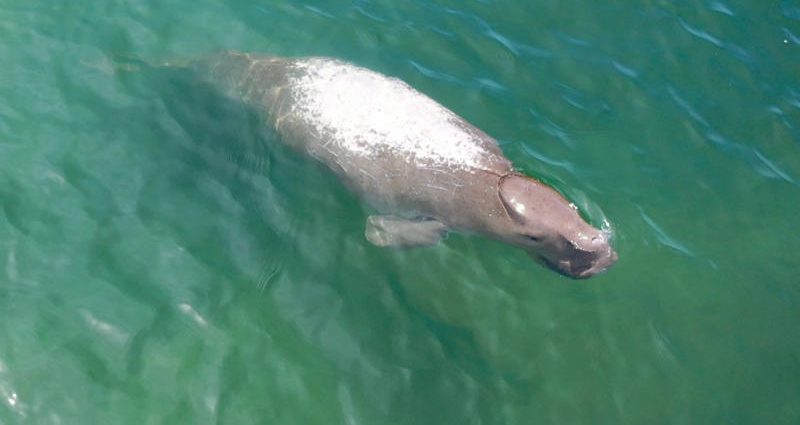PUBLISHED : 19 Feb 2024 at 12:06

Dugongs in the Andaman Sea are in grave danger due to the diminishing supply of seagrass, which is their main source of food, a highly respected marine biologist has warned.
Thon Thamrongnawasat, deputy dean of Kasetsart University’s fisheries faculty, posted a Facebook message on on Monday reiterating his concerns for the future of marine life, with the fate of dugongs high on his list.
“Seagrass is dying off over several thousand rai. So what is left for payoon to eat?” he said.
Thailand has about 100 known dugongs, a marine mammal known locally as payoon. Most of them are found in the waters of Trang and Krabi provinces, and each eats 15-40 kilogrammes of seagrass a day.
Trang has the largest area of seagrass, but at least 10,000 rai, more than half of it, has been seen dying-off in recent months, the biologist said.
Mr Thon said on Mcot radio on Sunday that the emerging crisis was possibly due to global warming, but the actual cause of the problem off Trang remained unknown. “We believe it is linked with global warming, which contributes to change in the environment. But we still don’t know exactly what the factors are,” he said.
Last week, the Department of Marine and Coastal Resources looked into the problem on the ground in Trang and Krabi, including talks with residents on Libong Island in Trang, trying to assess the situation and find a solution.
The sea around Libong is a prime habitat for dugongs and the people there are credited for their conservation efforts to preserve them.
“People there told us they have never seen the seagrass die on such a large scale over the last 40 or 50 years,” said Mr Thon, who was on the trip with the department.
He said the problem is expanding from Trang to neighbouring Krabi, and the depleting food resource would increase the danger to the dugongs’ survival.
The department said on Friday it was seeking measures to overcome the problem, but provided no details of its plans.

